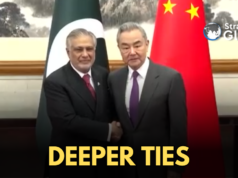NEW DELHI: The past few weeks have witnessed an intensified propaganda campaign by Chinese officials and the Communist Party-state media to shift the narrative around the Covid-19 outbreak. This multifaceted effort is driven by four specific objectives, which all feed into the larger strategic objective of securing and strengthening the regime. And for that, what’s most important to the Party is ensuring a favourable domestic narrative.
First, there is a clear attempt to gloss over the early failures of the Chinese government in tackling the outbreak. This is critical from a domestic perspective. A number of arguments have been put forward to obfuscate the Chinese government’s missteps. These include nuanced propositions such as detection does not imply origin, the usurping of the legacy of the late whistleblowing doctor Li Wenliang to the pedalling of conspiracy theories to sow disinformation.
Second, there is an effort to showcase the success of Chinese policies in containing the epidemic. This has entailed highlighting the dwindling numbers of domestic cases, positive stories and images of healthcare professionals leaving Hubei and focus on government efforts to kick-start economic activity. Expect this to intensify as the lockdown in Wuhan is lifted on April 8. At the same time, there’s no negative coverage, such as a commemoration of the deceased or the angry pushback that Wuhan’s gratitude campaign generated.
This links to the third objective of pitching China as an international public goods provider, owing to its experience and manufacturing base. Chinese media have contrasted the falling incidence of disease in the country with the explosion of the outbreak globally. This serves domestic legitimacy purposes. But externally, the objective is to showcase China as a responsible global actor. Chinese media outlets and diplomats have highlighted the sharing of experience, talent and medical supplies, including masks, respirators and protective suits, with a number of countries. In a number of these cases, it is important to read the fine print. Often the provision of supplies is sales rather than aid.
At the same time, Beijing is looking to step into the vacuum created by Washington’s bumbling response at home and abroad. This entails coordinating a global and multilateral response and positioning China as a global leader. President Xi has been pushing this agenda by reaching out to world leaders. Chinese media, on the other hand, has argued that the pandemic has “demonstrated the necessity of building a community with a shared future.”
In the pursuit of these objectives, perhaps most attention has been focussed on the exchanges of barbs between Chinese and American officials and media-persons. Such exchanges, however, are unlikely to serve strategic interests; rather, they would likely attract a backlash. Already, there is evidence of this in Europe. Josep Borrell, the EU’s foreign affairs in-charge, recently highlighted the ongoing “global battle of narratives,” which entails “a struggle for influence through spinning and the politics of generosity.”
What also suggests that the abrasive approach is probably not being seen as ideal by Beijing, is the change in tone over the past few days by China’s ambassador to the US Cui Tiankai, to the US and the Foreign Ministry’s provocateur-in-chief Zhao Lijian. While the former has disavowed the US lab conspiracy theory, the former has gone from vitriol on Twitter to striking philosophical notes about mankind being a community with a shared future.
Whether this change in tone will sustain or whether one will see a return to conspiratorial hyper-nationalism will depend on domestic stability and international pressure in the weeks to come.
(The author is a Fellow at the Takshashila Institution where he researches on China’s politics, foreign policy and approaches to new technologies. Views are personal.)




